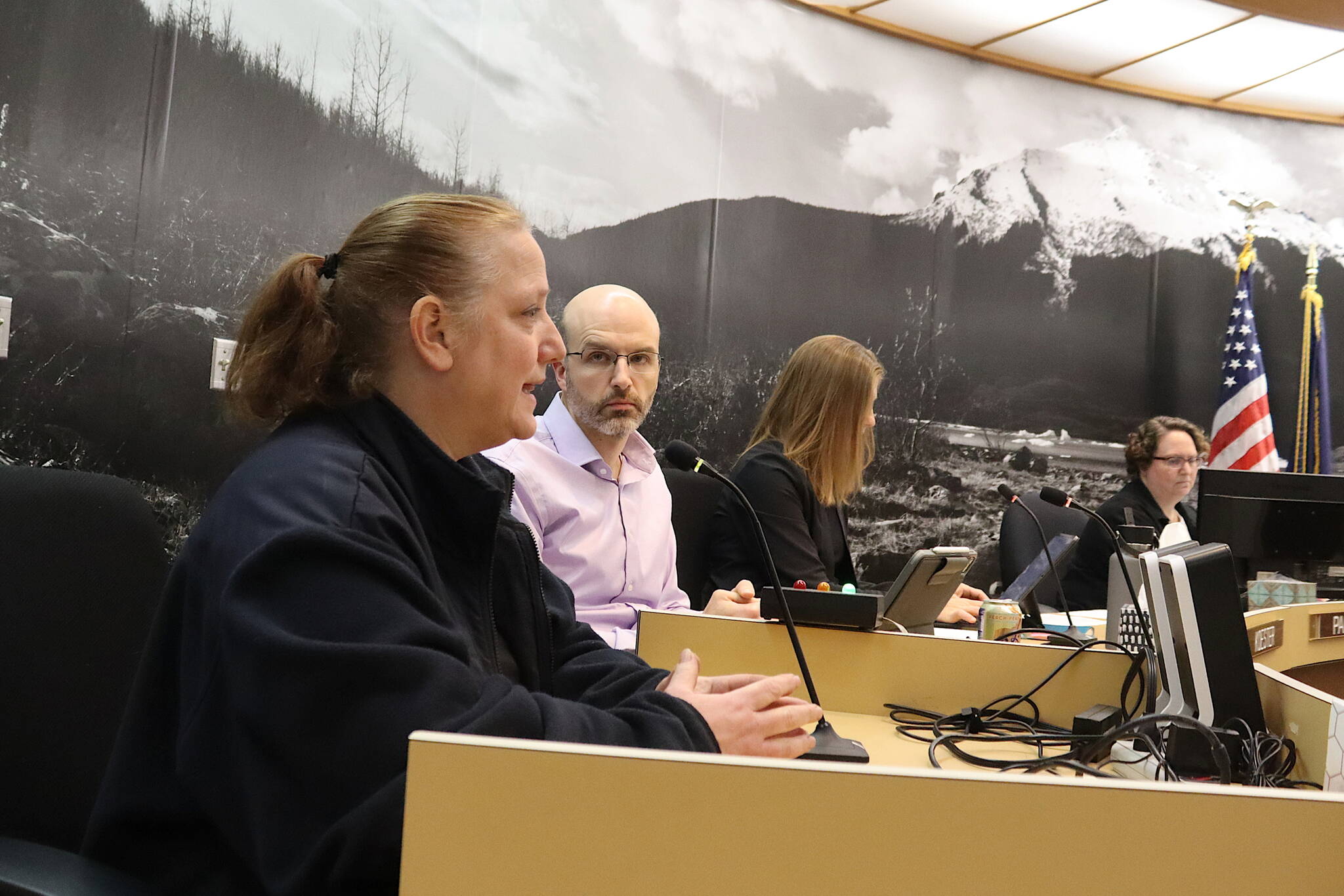A proposal nearly doubling the number of licenses for establishments in Juneau allowed to serve alcohol was put on hold by the Juneau Assembly on Monday night, following a lengthy debate by existing establishments worried about their threat to their businesses versus supporters arguing it’s an opportunity for new businesses.
Juneau currently has 23 Restaurant or Eating Place Licenses (REPLs) and a resolution considered by the Assembly would petition the Alaska State Alcoholic Beverage Control Board for up to 20 more. Assembly members voted 5-3 to stall the measure until November to allow more time for evaluation of the impacts and public input, possible further changes in state law for REPLs during the legislative session, and to reconsider the matter after the October municipal election.
Most of the testimony by residents Monday was by owners and/or managers of establishments serving alcohol who, in addition to worrying about the impacts on their business, questioned if there was a need for additional REPLs since several current ones are available.
“I do know that this doesn’t have to be done immediately because we are able to apply again and every other year,” said Venietia Bingham, owner of V’s Cellar Door, referring to the city’s ability to seek new licenses. “So I think it needs more consideration of why are you asking for this and why right now because I think there is some financial damage that can be done to the current owners.”
Leeann Thomas, owner of the Triangle Club Bar, said she’s concerned new seasonal businesses serving alcohol will cause problems by luring away existing full-time employees by offering temporarily higher wages. Among her other concerns is seasonal locations such as food carts don’t have bathrooms, resulting in an impact from visitors who frequently come into her establishment for that sole purpose.
“If you want to hurt year-round businesses in this town this is the perfect way to do it,” she said.
Supporting the resolution was Brandon Howard, founder of Amalga Distillery, who said it will offer an opportunity to other people looking to start establishments who cannot afford the inflated prices it costs to purchase an existing license being offered for sale.
“Yes there are six or seven licenses for purchase, but as we know $50,000 to $70,000 is a lot of money,” he said. “And that is money that doesn’t go into payroll or employees. That is money that doesn’t go into renovations or spaces around town that we see that need a lot of love.”
The biennial seasonal restaurant or eating place tourism license fee from the state is $1,250.
Howard said he understands existing businesses are concerned about their investments, but “if you’re a good place and you’re open I don’t think your REPL is the thing that is to carry you through. Yes it is an asset that you may be banking on and that’s a challenge, but competition is always great for businesses.”
Recent changes in state law allow the Assembly to petition the state for additional REPLs, and allow them to be issued to seasonal businesses for periods of six months every year rather than the former year-round requirement.
“Wasilla and Valdez recently successfully petitioned for additional REPLs, 20 and 10, respectively,” according to a memo presented to the Assembly by City Manager Katie Koester and Assistant Municipal Attorney Sherri Layne. The memo also notes “the new formula takes into account resident and visitor population — which means from a strictly mathematical perspective Juneau could have over 1000 REPLs.”
The motion to delay the issue until November was made by Assembly member Greg Smith, who said he also favors reducing the number of new licenses the city would seek to five.
Assembly member Wáahlaal Gíidaak Barbara Blake objected, stating that among other factors she doesn’t want to wait until after the local election when an unknown person might be in her seat making the decision.
“I am not a big fan of punting things down the road,” she said. “I believe in hitting things head-on. If we’re going to talk about it then let’s talk about it and make a decision.”
Blake said she also supported the addition of 20 licenses since that number “was intended to create additional opportunities for those who have means to be able to jump into the market.”
Other members, including Mayor Beth Weldon, said they favored the delay based on the numerous issues raised during the evening. Assembly member Wade Bryson said some of the information provided during earlier hearings wasn’t accurate, so ensuring decisions are made based on complete information is important, and “I would say that we want to be cautious about harming existing people that own these.”
• Contact Mark Sabbatini at mark.sabbatini@juneauempire.com or (907) 957-2306.

